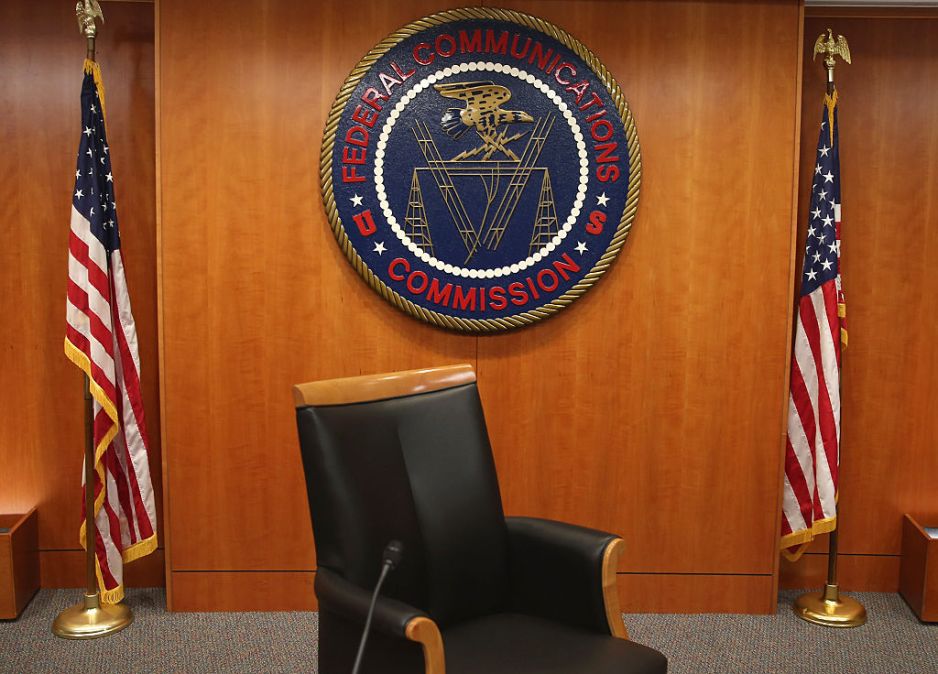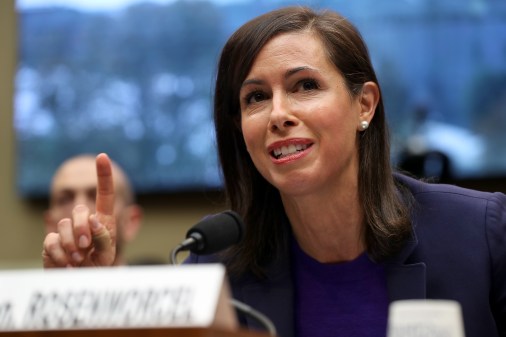Senate bill calls for FCC-led task force to combat overseas robocalls

To better battle the scourge of robocalls plaguing Americans’ phones, a bipartisan pair of senators is pushing new legislation that would require the Federal Communications Commission to train its eyes on scammers operating abroad.
The Foreign Robocall Elimination Act from Sens. Ted Budd, R-N.C., and Peter Welch, D-Vt., charges the FCC with creating a public-private task force focused on finding new methods to eliminate unlawful robocalls that are made by overseas actors, an effort that Budd said is aimed at better protecting Americans “from being preyed on by criminal enterprises across the globe.”
“Robocalls from scammers aren’t just annoying, they victimize tens of millions of Americans, stealing billions of dollars from unsuspecting individuals,” the North Carolina Republican said in a press release Tuesday. “With many robocalls originating overseas, combining the efforts of government agencies in charge of protecting Americans from scams with private sector expertise will help us stay ahead of cutting-edge technologies used by foreign criminal enterprises.”
The bill, Budd added, builds on “the important steps Congress has taken to curb these harmful robocalls,” referring to the TRACED Act. The 2019 law was meant to deter criminal robocall violations and bolster enforcement of section 227(b) of the Communications Act, which restricts the use of automated phone dialing systems.
Despite the enactment of the TRACED Act and subsequent congressional and FCC efforts, robocalls remain a serious problem. Welch said in the press release that “Vermonters receive nearly 3.5 million robocalls every month. And it’s not only our state — folks in red and blue states alike are sick and tired of picking up the phone and wondering if they’re talking to a friend or being scammed.”
Under the new bill, the FCC task force — created in consultation with the Federal Trade Commission and the attorney general — would enlist other relevant federal agencies and seven private sector representatives, including voice service providers, analytics providers, technologists and other experts.
There would also be someone from the marketing world who “communicates with consumers by telephone as part of the normal course of business,” per the bill text, as well as a business or nonprofit rep who uses the phone for non-marketing purposes and someone from an organization that advocates for consumers and has relevant experience combating robocalls.
Once assembled, the task force would prepare a report for federal agencies and for Congress that contains recommendations to ward off unwanted robocalls and makes recommendations for doing so. The report would examine issues including caller ID technologies in foreign countries, which nations have emerged as primary source points for foreign calls, the magnitude of financial losses and stolen identities, and potentially better technical solutions, among other measures.
From an enforcement standpoint, the bill charges the task force with exploring options for a stronger Department of Justice presence. There would also be an exploration of incentivizing foreign countries to cooperate with U.S. law enforcement on the matter.
The press release announcing the bill touted key endorsements from AARP and USTelecom – The Broadband Association.
“Illegal robocalls are not just a nuisance — they’re a threat to vulnerable Americans and a tool for scammers around the world,” said Josh Bercu, senior vice president of the trade group and executive director of the Industry Traceback Group. “Thanks to strong partnerships between the Industry Traceback Group and federal, state, and local law enforcement, we’ve made measurable progress in stopping these bad actors. The Foreign Robocall Elimination Act builds on this success to empower industry and law enforcement to use what works to crack down on the bad actors overseas preying on Americans.”




